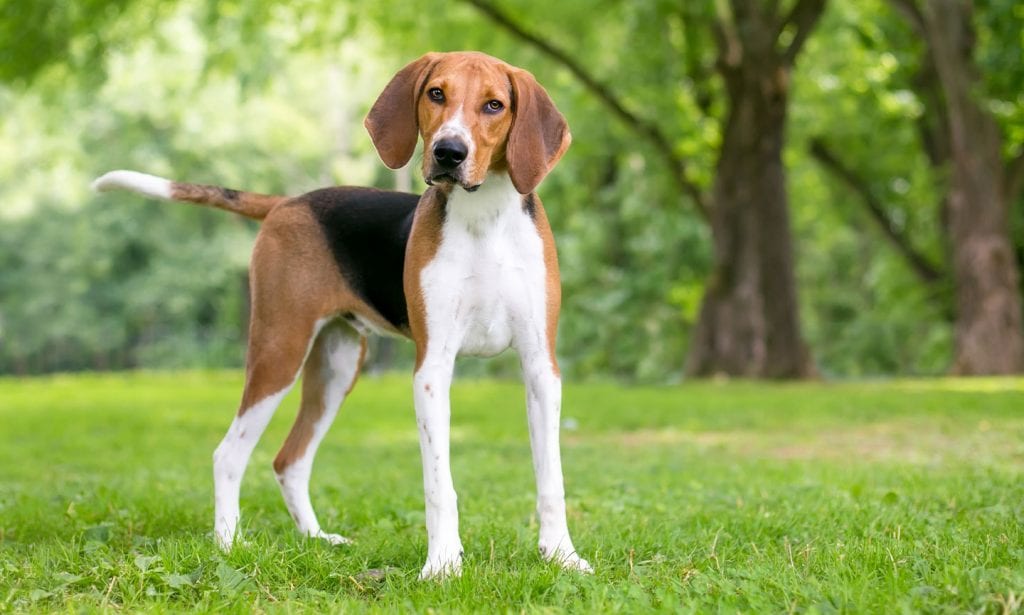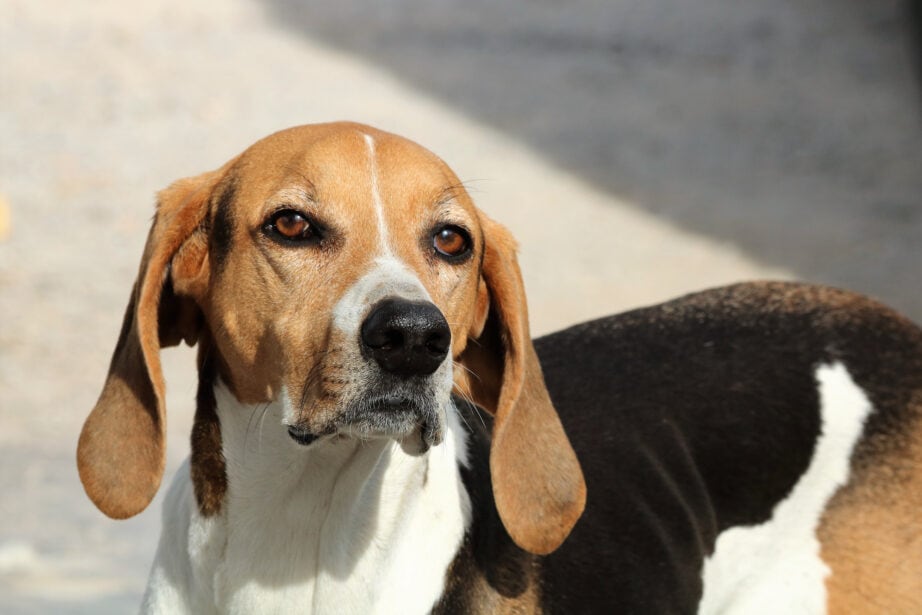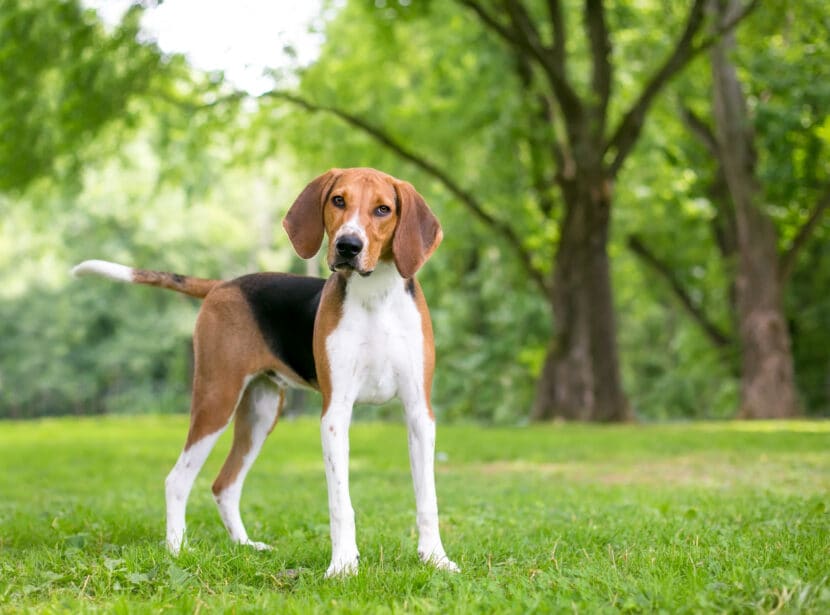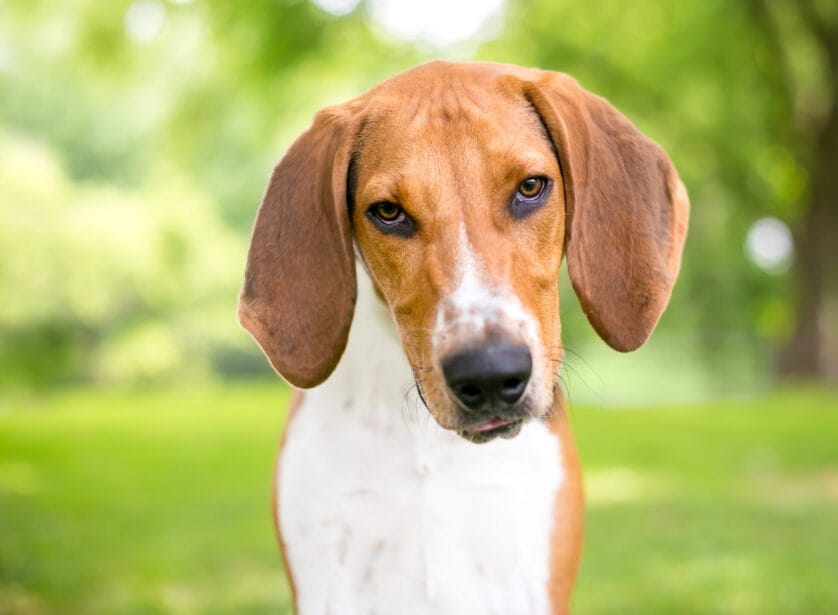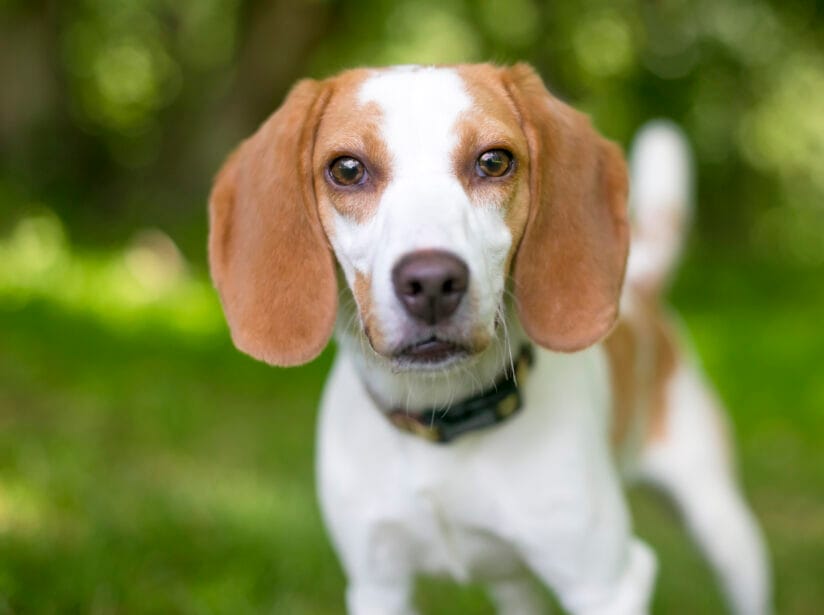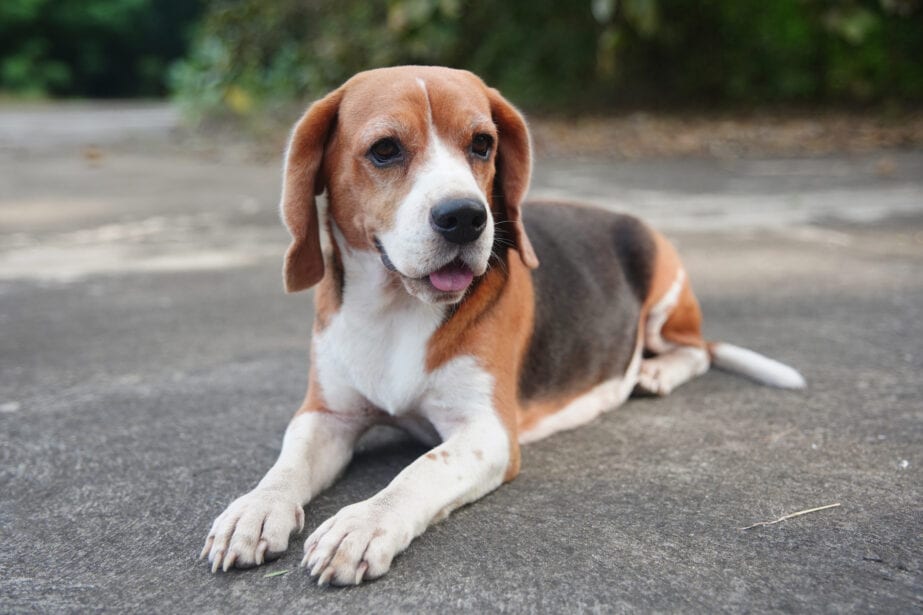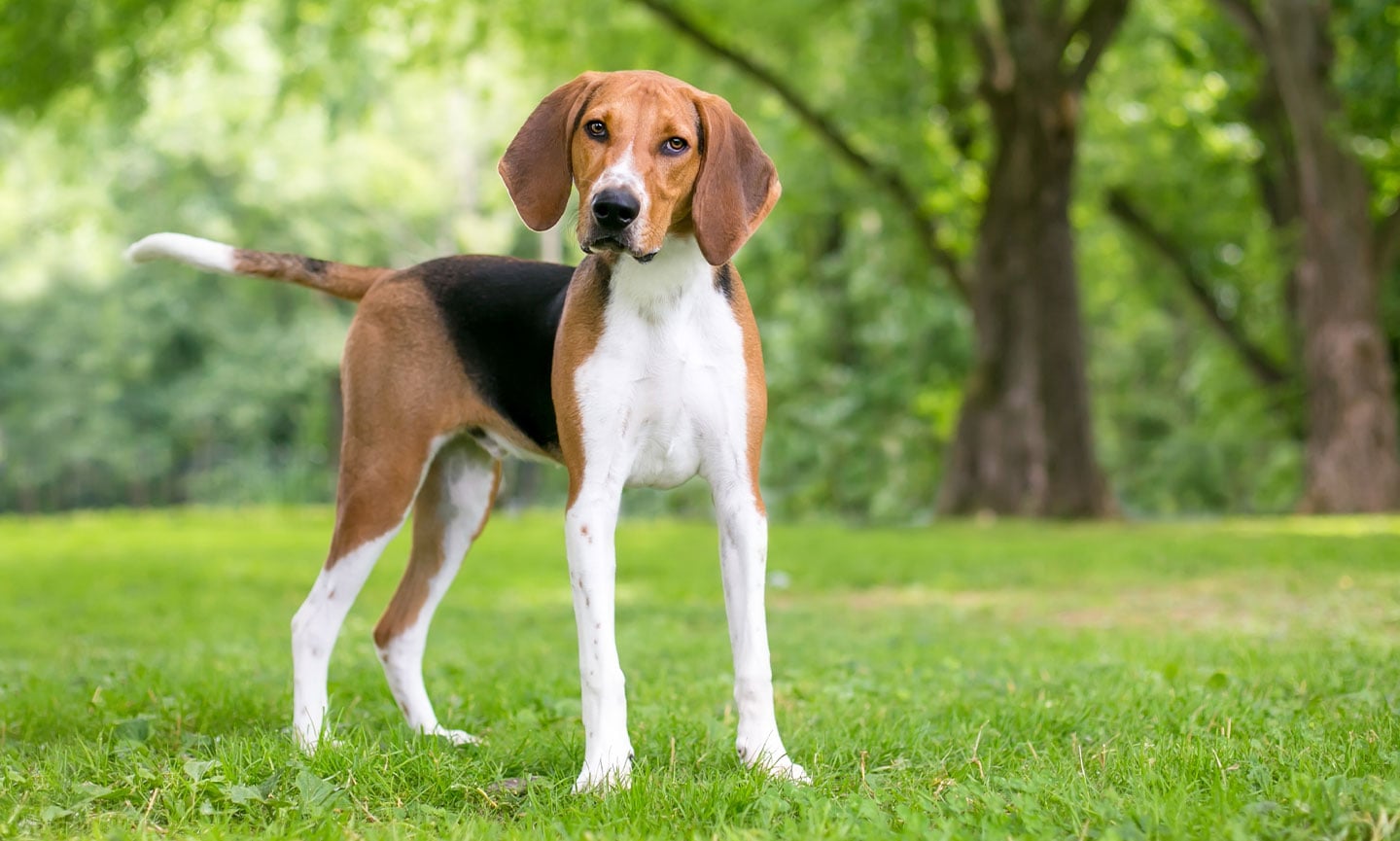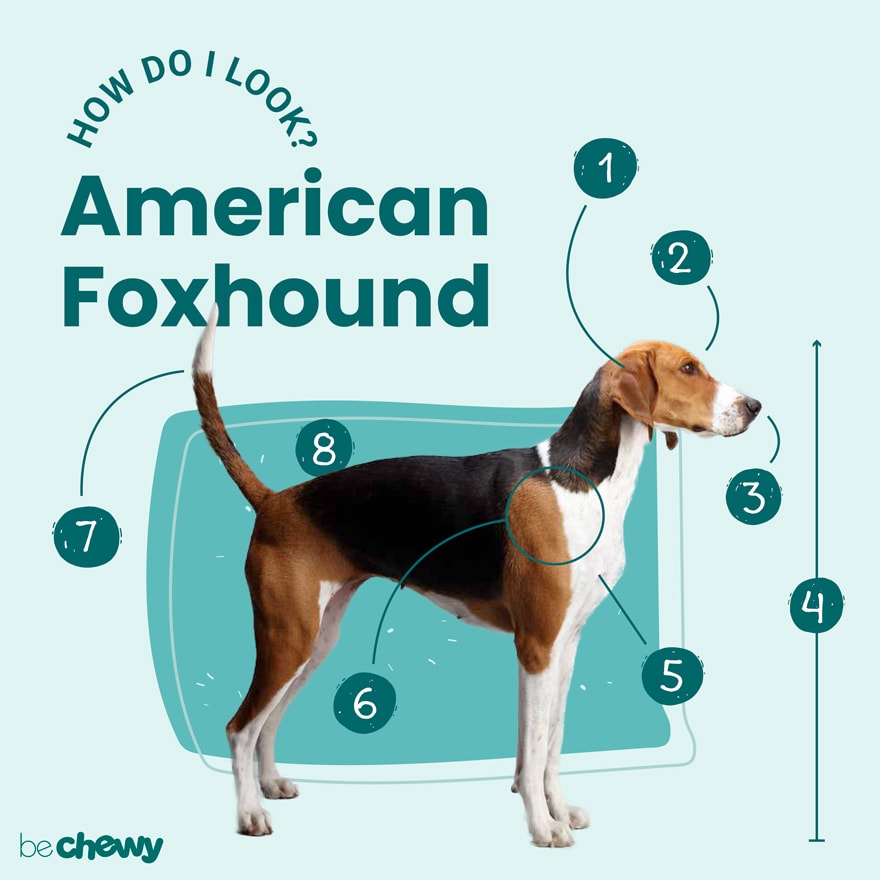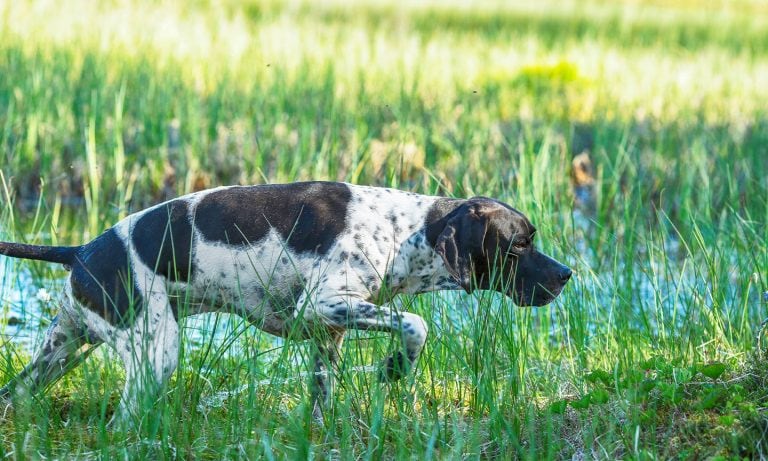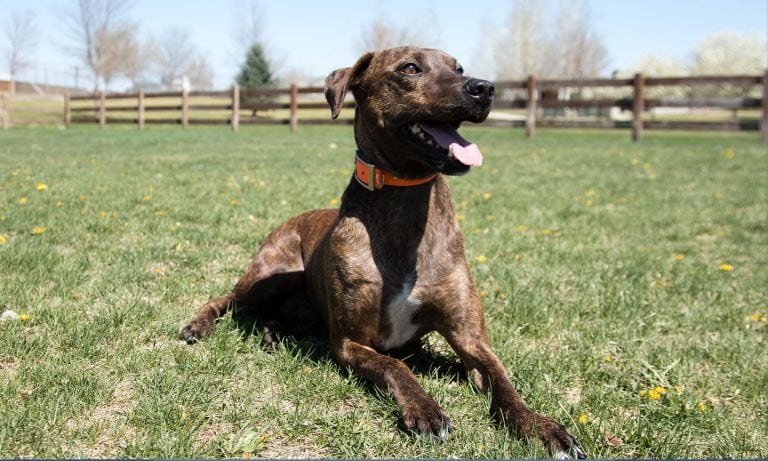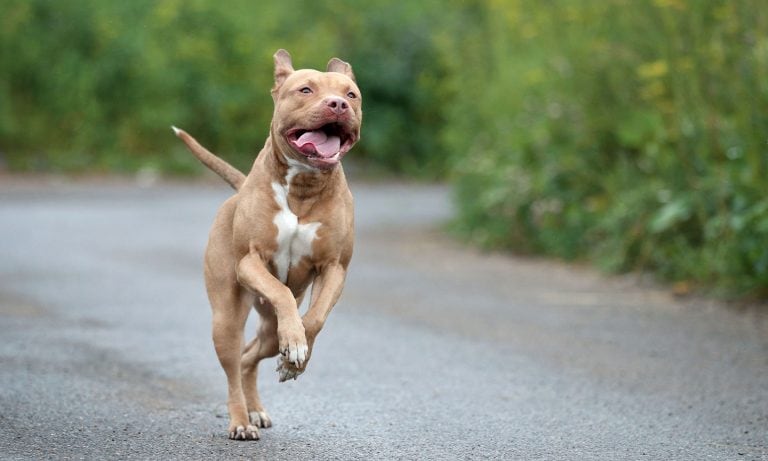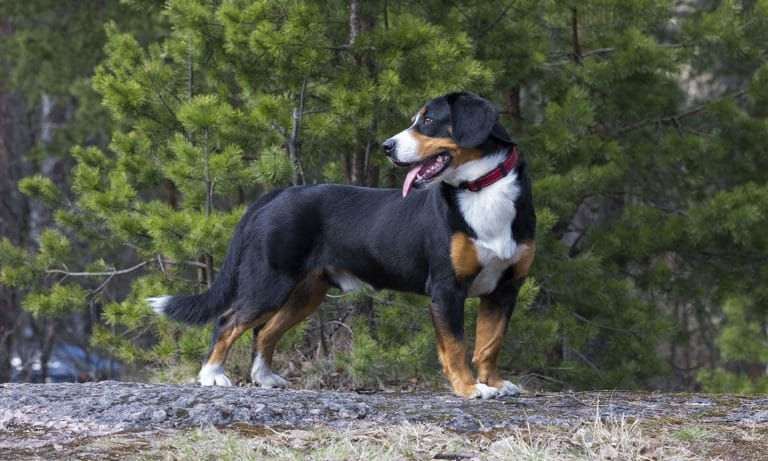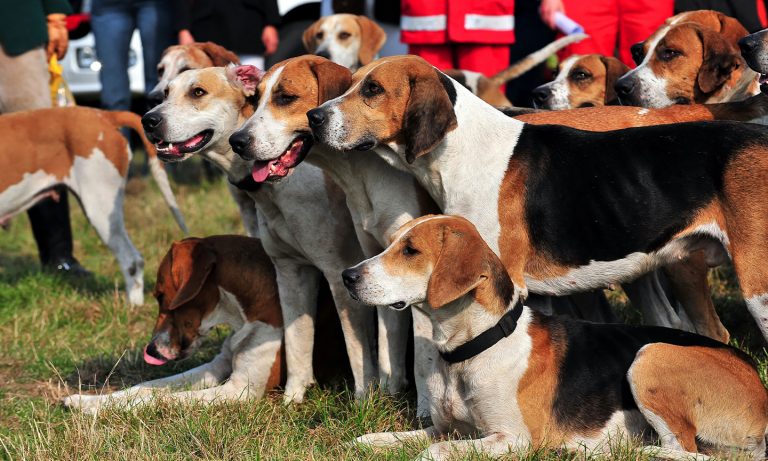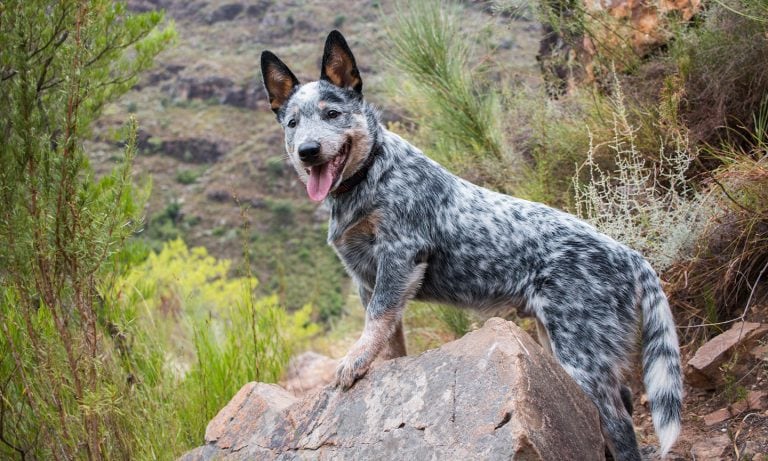The American Foxhound has boundless energy and an up-for-anything attitude, making them the perfect canine companion for active pet parents. An afternoon run through the park? Time to get the leash. Want to participate in scent tracking competitions? See you in the winner’s circle. Ready to take an afternoon nap? Who are you kidding? You’ll be in the backyard engaging in a lively game of fetch with your perky pooch. Smart and tons of fun, this breed won’t stop ’til they’re ready to flop.
Breed Snapshot
Temperament:
High-SpiritedEnergeticEasygoingCoat Color:
White Black And TanBlack White And Tan
Best For
The American Foxhound is a sweet, loyal pup who's always on the go. Bred for hunting, these dogs require ample exercise and mental stimulation. Potential pet parents should be prepared for an independent and active furry friend.
American Foxhound Temperament
It’s hard not to fall in love with an American Foxhound dog. At the dog park, running errands or waiting on the vet, this outgoing breed knows how to turn strangers into friends. Their personality is best described as easygoing, mild-mannered and up for adventure.
American Foxhounds are charming and shameless in their quest for attention: Pet them once, and they’ll return for affection (and return the affection) over and over. While the breed doesn’t quite achieve Velcro-dog status, American Foxhounds love spending time with their people.
Foxhounds will thrive as members of active families who want a four-legged companion for games of tag, long walks around the neighborhood, trips to the park, swimming and camping. And, after all the outdoor activities, these floppy-eared hounds will happily flop down on the couch for family movie night.
While your four-legged bestie would happily spend all their time enjoying long walks in the park and cuddling on the couch and are great with kids, it can’t be all play and no work; raising a Foxhound requires regular and consistent training. These dogs were bred to hunt and need a job to do. Providing physical and mental stimulation—think food puzzles, training games or competitive dog sports—can help promote good behavior.
Like other scent hounds, Foxhound dogs are pack hounds and tend to enjoy the company of other dogs and appreciate having a four-legged playmate to help burn off some of their excess energy. But be cautious about introducing an American Foxhound to other pets, including cats; the breed is not aggressive and exhibits minimal biting tendencies, but they may chase (and scare) smaller animals.
How to Care for a American Foxhound
Exercise is the primary love language for American Foxhounds. Be prepared to provide lots of high-octane activities to keep this active breed on their best behavior. While they are known for being easygoing, American Foxhounds can also be strong-willed and require regular training (plus grooming and well-balanced diets) to be happy, healthy members of the family.
American Foxhound Health
American Foxhounds have a lifespan of 11 to 13 years. Compared with other breeds at high risk for numerous health issues, they’re considered quite healthy—but that doesn’t mean they aren’t affected by common conditions.
- Hip Dysplasia: This condition is diagnosed when the ball and socket that make up the hip joints don’t fit together quite right, causing varying degrees of pain, instability of the joints and arthritis as the dog matures. While hip dysplasia is more common in large breeds, it also affects American Foxhounds. The risk factors range from genetics and excessive growth to weight and nutrition. Your veterinarian may recommend joint supplements, anti-inflammatory medication, physical therapy or, in severe cases, surgery.
- Ear Infections: Like other floppy-eared hounds, American Foxhounds are at higher risk of ear infections. The shape of their ears covers their ear canals, trapping moisture and creating the right environment for bacteria and yeast to thrive. Remember to dry their ears thoroughly after a bath or swim and ask your vet for tips to clean their ears to prevent infections.
- Bloat: American Foxhounds have deep chests and thin waists, putting them at increased risk for bloat and gastric dilatation-volvulus (GDV). GDV occurs when gas stretches the stomach and causes it to twist. The condition can be life-threatening, so if you suspect your pup has GDV, go to the vet immediately. You can prevent it by feeding your pup smaller meals more often throughout the day; using a slow feeder to prevent them from inhaling their kibble; and avoiding strenuous exercise one hour before and after meals. To prevent it from recurring, your vet may recommend a procedure that stitches the stomach to the side of the body.
- Blood disorders: American Foxhounds are predisposed to develop thrombocytopathy, which is a blood disorder that affects the normal clotting ability of platelets. Affected dogs may bruise more easily than normal, which could be a particular concern for active, working dogs.
American Foxhound History
The American Foxhound is believed to be the oldest—and perhaps the first—dog breed developed in the United States.
As far back as 1650, European settlers landed on American shores with their hound dogs in tow. Cross-breeding various hounds led to taller, lighter and faster dogs who excelled at following scents, chasing foxes and working alongside hunters on horseback.
George Washington played a special role in their history by keeping a pack of American Foxhounds at Mount Vernon. He expanded his breeding program and crossed his hounds with English Foxhounds imported from France as a gift from the Marquis de Layfette to further refine the breed. Over time, the American Foxhound became increasingly distinct from the English Foxhound.
It’s a little-known fact that Washington hosted annual hunts at Mount Vernon, inviting equestrians and their hounds to race across the grounds in pursuit of foxes. Horses and hounds were a popular combination for well-heeled plantation owners across Virginia, and the American Foxhound was the preferred dog for hunting and companionship. In fact, the pup is the state dog of Virginia.
The American Kennel Club recognized the breed in 1886 and is a lesser-known breed nationwide. If you’re looking for a Foxhound puppy, you can find reputable breeders through the American Kennel Club’s website. Puppies cost between $400 to $600. But for that price, you’re likely getting a puppy who’s been screened for temperament and health issues and may include pedigree papers. You might also find an American Foxhound available for adoption through a rescue group specializing in hound breeds. Search Chewy’s database of adoptable dogs for American Foxhounds in your area.
FAQs
Do Foxhounds shed?
All dogs shed and Foxhounds are no exception, but they are considered a low-shedding breed.
Are Foxhound good pets?
Foxhounds make great pets for active pet parents who are committed to providing lots of high-octane activities, consistent training and spending a lot of time with their outgoing, sweet-natured dogs.
Do Foxhounds bark a lot?
Foxhounds bark a lot—they have a lot to say! Like typical hound dogs, their vocalizations range from barking to baying and howling (and can be heard for miles around—which is necessary for hunting).
What are the most popular Foxhound names?
The most popular Foxhound names are Copper (from the movie, “Fox and the Hound”), Chief, Hunter, Foxy, Scout, Rusty and Patches. Get more dog names here.
What are the most common Foxhound mixes?
- American Foxhound-Beagle mix (American Foxeagle)
- American Foxhound-Labrador mix
- American Foxhound-Pit Bull mix
- American Foxhound-German Shepherd mix
- American Foxhound-Boxer mix
- American Foxhound-Jack Russell Terrier mix
Note: These are not purebred dogs but mixed breeds.

Top Takeaways
American Foxhounds love to be out and about, meeting new people, experiencing new places and trying new activities. Yes, it takes a lot of exercise to keep them happy and healthy, but your reward is a super sweet (and adorable) sidekick who will serenade you with their hallmark howl and curl up beside you for an epic cuddle after a day of adventure.
Expert input provided by veterinarian Jami-Lyn Derse, DVM, founder of Veterinary Housecall Care, and certified dog trainer and behavior consultant Jenn Stanley, CPDT-KA CBCC-KA, owner of Awesome Pawsabilities.
Breed characteristic ratings provided by veterinarian Dr. Sarah J. Wooten, DVM, CVJ, a veterinarian at Sheep Draw Veterinary Hospital in Greeley, Colorado; dog trainer and behavior consultant Irith Bloom, CPDT-KSA, CBCC-KA, CDBC, owner of The Sophisticated Dog, LLC, in Los Angeles; and certified animal behavior consultant Amy Shojai, CABC, in Sherman, Texas.
The health content was medically reviewed by Chewy vets.
Photo credit for “How do I look?” by HappyPetStories.com.

Search for Adoptable American Foxhounds Near You
Top American Foxhound Names
These are the top American Foxhound names as chosen by Chewy's pet parents!
Female Names
- Daisy
- Sadie
- Ellie
- Luna
- Maggie
- Bella
- Willow
- Ruby
- Dixie
- Lucy
Male Names
- Cooper
- Hank
- Murphy
- Copper
- Charlie
- Max
- Jake
- Hunter
- Duke
- Maverick
Share:
